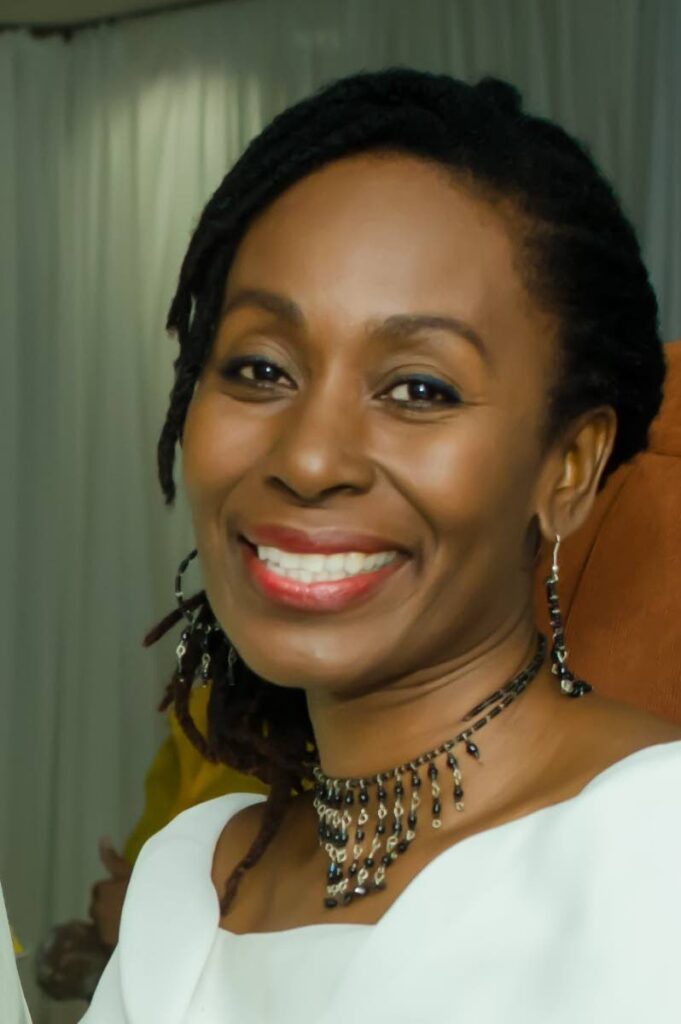How storytelling empowers small islands

Enough Griot! Go back to your council. Tell them the Water Spirit want to hear how they plan to clean up this island from all the plastic and other rubbish all over the place. And…I want to know what changes they making to involve Ms Lena and the other women in decisions about rebuilding the community.”
– Extract from Chant of the Water Spirit
WE ENTERED the room in procession, singing for Yemanja, water spirit, mother of oceans, giver of life. We took our time, stepping reverentially towards the stage, moving through a room filled with representatives of small island developing states (SIDS) from around the world.
This was the start of the UN Women’s Gender Equality Forum (GEF) where we complemented the deliberations with storytelling, music, song, dance and masquerade. "Powerful performance," we were told.
However, after two days of storytelling, we were left with the overwhelming sense that culture and the arts need to play a more critical role in conversations around the needs of small islands. But how?
The GEF was one of several meetings convened before the Fourth International UN Conference on Small Island Developing States (SIDS4) in Antigua and Barbuda. For the GEF, the arts was chosen as a vehicle to speak about the links between gender equality and the survival of small islands.
Our NGO was privileged to have the opportunity to engage participants in a series of theatre-based storytelling events throughout the meeting. In my new play Chant of the Water Spirit, we explored the importance of including women in the decisions about rebuilding communities and supporting them to be more resilient to climate change.
We also addressed the reality of abuse and gender-based violence. The connection between these, climate change and the survival of small island developing states is not always obvious. Often the voices of girls and women are silenced through abuse and lack of access to proper healthcare or strong support systems. This affects their ability to protect themselves and their families, far less even think about climate change.
One delegate shared a story about a young girl who just turned 13. She dreamed of going to university and contributing to her community. However, because of poor communication about female sexual health at school, home and other spaces, this young girl with promise became pregnant. Now, not only were her life choices limited, but the value she could have offered to her community was either delayed or no longer an option.
Stories like that are relevant to us in Trinidad and Tobago where there is still resistance to empowering girls with knowledge about sexual health and relationships. Additionally, there is a need for more spaces for men and boys to feel safe enough to express themselves and receive the support they need.
Further, poor communication about these topics may affect young people mentally. They can spiral into depression, hopelessness or loss of self-esteem because they do not feel there are outlets for expression. The arts should, therefore, be seen as a valuable tool in transforming the way we talk about and engage with gender.
In his address at the SIDS conference this week, UN Secretary General Antonio Guterres declared that “we cannot accept the disappearance of any country or culture under the rising waves.” Yet, progress is slow and we witnessed the frustration of participants who have been attending these conferences since the 1990s.
Communication and access to information have radically changed since then. It struck me that the format of these global meetings should also change, allowing the arts to serve as powerful stimuli throughout the process. This methodology would include artists, young people and community activists at the centre of the discussion, rather than the periphery. It would revolutionise and improve the way decision-makers even have the conversation in the first place.
The secretary general pointed out that the “global financial system is outdated, dysfunctional and unjust, and is failing to provide a safety net for many developing economies...” As the UN continues to advocate for reforms, cultural practitioners must be included in more fundamental ways.
Stories are ancient representations of the culture of a people. Since small islands face increasing dangers from formidable environmental forces, perhaps it is time to make more space for artists and storytellers to motivate people to transform their behaviour. We urgently need our creatives to help save our islands, the places we call home.
Dara E Healy is a performance artist and founder of the Indigenous Creative Arts Network – ICAN

Comments
"How storytelling empowers small islands"